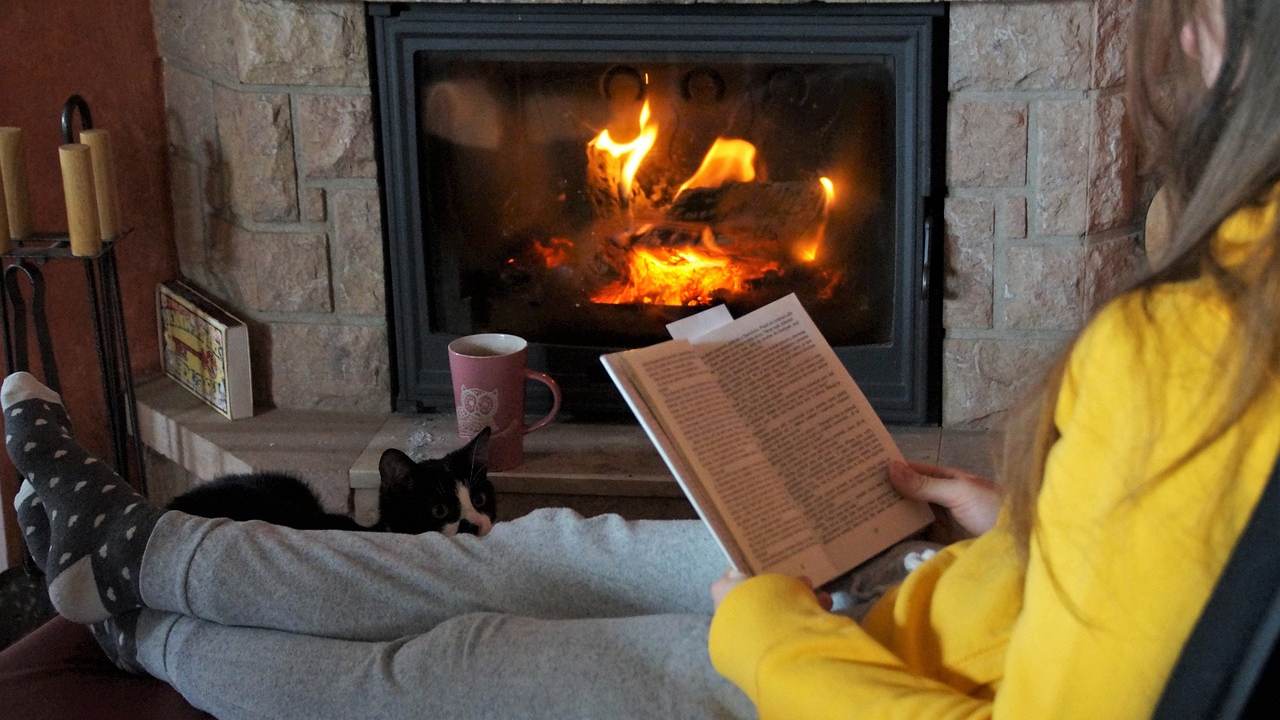How to Take Care of Your Mental Health During the Winter Months


| Article writen by: Abby | 20 October 2023 |
Winter is a season of contrasts. The beautiful snowy landscapes and cozy indoor atmospheres are offset by shorter daylight hours, chilling temperatures, and for some, a sense of isolation. For many students, particularly at institutions like Leicester University, the challenges posed by winter can have a noticeable impact on mental health. Balancing academic rigor with personal well-being becomes even more vital. Let's dive into strategies tailored for this season, keeping in mind the unique context of a university student's life.
Embracing the Comfort of Your Room
Your room, be it a Leicester Student Beehive Room or an off-campus apartment, is your sanctuary. Making it a comforting and mentally nourishing space is crucial during winter.
- Warm Lighting: As daylight diminishes, ensure your room is illuminated with warm lights. Soft yellow or golden hues can simulate the warmth of sunlight, helping combat Seasonal Affective Disorder (SAD), a type of depression linked to changes in seasons.
- Digital Resources: Use online platforms to maintain connections. The University of Leicester Library, for instance, offers a plethora of online resources not just for academic needs, but also for relaxation and leisure. Dive into e-books or watch academic webinars to keep your mind engaged.
The Leicester Winter Experience
Being part of a vibrant community like Leicester during winter offers numerous opportunities to care for your mental health.
- City Centre Café Hops: Cafés aren't just places to drink coffee; they can be pockets of warmth and comfort in a cold city. Regular visits can act as a break from the monotony and offer social interaction.
- Cultural Scene: Engaging in cultural activities provides mental nourishment. Leicester's winter festivals, theater visits, and local events offer a chance to break from the usual academic grind and immerse oneself in the city's rich tapestry.

Group Activities and Collective Warmth
Human connection is a vital component of mental health. The shared experiences and collective warmth can combat feelings of isolation during the chilly months.
- Group Study Sessions: Organize group study sessions in shared spaces like halls of residence. The combined camaraderie, collective body heat, and academic discussions can serve as both a learning and bonding experience.
- Sports and Fitness: Staying active during winter is essential for mental health. Engage in winter sports or indoor fitness activities available at the University of Leicester. Physical activity releases endorphins, which act as natural painkillers and mood elevators.
Preparing for Winter's Challenges
The transition from longer days to longer nights can be tough. Anticipating challenges and planning can help in ensuring mental well-being.
- Layering and Warmth: Physical comfort contributes to mental comfort. Dressing warmly, having hot beverages, and ensuring your living and study spaces are warm can contribute to a sense of well-being.
- Seeking Support: Leicester's student community is known for its camaraderie. Engaging with support groups, counseling services, or just talking to a friend can make a significant difference.

Mindful Practices for Mental Calm
During the winter months, when the environment outside is colder and often darker, turning inward can be a powerful way to maintain mental equilibrium. Mindfulness practices have been lauded for their ability to help individuals stay present, reduce anxiety, and cultivate a sense of inner peace.
- Meditation: Begin with simple breathing exercises, focusing on your breath's rise and fall. As you become more comfortable, you can explore guided meditations or join meditation groups at Leicester University or in the broader community. These practices can be particularly grounding during the bustling end-of-term periods or exam seasons.
- Journaling: Writing down your thoughts, worries, or even simple daily occurrences can provide clarity and a sense of release. A winter journal can also serve as a reflection tool, allowing you to look back on personal growth and moments of joy during the season.
- Yoga: While it offers physical benefits, yoga's core is mental and spiritual well-being. The combination of movement, breathwork, and meditation can be deeply calming. Many student communities, including those at Leicester, offer group yoga sessions tailored for beginners to experts.
Nourishing the Body to Nourish the Mind
The connection between the body and the mind is profound. What you consume and how you treat your body can have direct implications for your mental state.
- Winter Comfort Foods: Dive into Leicester's culinary offerings and explore winter comfort foods that aren't just delicious but also nutritious. Opt for dishes packed with vitamins and minerals to combat winter fatigue. Soups, stews, and dishes with root vegetables can be both satisfying and healthful.
- Hydration: With the cold, we often forget to drink water, but staying hydrated is crucial. Dehydration can lead to fatigue and reduced cognitive functions. Herbal teas can be a great way to stay warm and hydrated.
- Vitamin D: Reduced sunlight can lead to a Vitamin D deficiency, which has been linked to mood fluctuations and depression. Consider consuming foods rich in Vitamin D or discuss supplementation with a healthcare professional.
Exploring New Hobbies and Passions
Winter can be the perfect time to pick up a new hobby or rediscover an old passion. Distracting the mind and engaging in creative pursuits can be a brilliant way to combat winter blues.
- Art and Craft: Painting, knitting, or any other craft can be therapeutic. Not only does it offer a distraction, but the act of creating something can provide a sense of accomplishment.
- Reading: While academic reading is crucial, delving into fiction, poetry, or non-academic non-fiction can offer an escape. The libraries at Leicester University have diverse collections that can cater to varied interests.
- Music: Whether it's learning a new musical instrument, singing, or simply listening to different genres, music has the power to elevate moods. Consider joining a student band, choir, or music group.

Social Connectivity in the Digital Age
While winter may sometimes make it challenging to meet in person, the digital age offers countless ways to stay connected.
- Virtual Study Groups: Even if you can't make it to the library or a friend's room, consider forming virtual study groups. This approach maintains academic collaboration and social interaction.
- Online Workshops: Many institutions, including Leicester University, offer online workshops on varied topics, from academic skills to personal development. Engaging in these can be both educational and a way to connect with peers.
- Digital Detox: Paradoxically, while online platforms are essential for staying connected, it's also crucial to recognize when to disconnect. Setting aside specific times in the day or week where you are free from digital devices can help reduce anxiety and promote better sleep.
Seeking and Offering Support
Remember, you're not alone in how you feel. Winter affects many, and reaching out, both for support and to offer it, can make a significant difference.
- Peer Support: Many universities, including Leicester, have peer support programs where students can talk to trained student volunteers about their feelings and concerns.
- Professional Counseling: Never hesitate to seek professional help if feelings of sadness, anxiety, or isolation persist. Universities often have counseling services that understand the unique pressures faced by students.
- Offer a Listening Ear: Sometimes, the best way to help oneself is to help others. If a friend or classmate seems down, offering a listening ear can be comforting for both parties.
Conclusion:
Winter, with its unique challenges, necessitates a proactive approach to mental health, especially for students juggling academic pressures. By seeking warmth—both physical and emotional, engaging with the community, and making use of resources available, students can ensure their mental health thrives during the winter months.
Frequently Asked Questions
Engaging in Leicester's rich cultural scene can be a potent remedy for winter blues. Immersing oneself in local arts, music, and traditions offers a respite from the often dreary winter days, invigorating the mind and spirit. Participating in cultural events or visiting historical sites in Leicester allows individuals to connect with a sense of community, fostering feelings of belonging and reducing feelings of isolation often exacerbated by cold weather. Moreover, the sensory experiences, from vibrant art exhibits to soul-stirring musical performances, can stimulate the brain, elevating mood and combating seasonal affective disorders. Thus, by embracing Leicester's cultural offerings, not only do you gain a deeper appreciation for the city's heritage, but you also equip yourself with a holistic tool to uplift and support your mental well-being during the challenging winter months.
Yes! Winter can sometimes lead to feelings of confinement due to the cold, but there are numerous indoor activities that can be both enjoyable and beneficial for mental health. Engaging in mindfulness practices like meditation or yoga can be immensely therapeutic, helping to alleviate stress and instill a sense of calm. Taking up a creative hobby, such as painting, knitting, or crafting, can act as a therapeutic outlet for expressing emotions and enhancing cognitive skills. Reading is another activity that not only offers an escape but also stimulates the mind. Alternatively, cooking or baking can be both comforting and rewarding, allowing individuals to experiment with winter flavors and enjoy the fruits of their labor. Music, whether it's listening to uplifting tunes, playing an instrument, or even singing, can elevate mood and reduce feelings of anxiety. Board games and puzzles are not only entertaining but also enhance cognitive functions and provide an opportunity for social interaction. Lastly, indoor gardening with plants like succulents or herbs can offer a touch of nature, promoting feelings of accomplishment and connection to the environment. It's essential to choose activities that resonate personally, ensuring they provide both relaxation and stimulation for optimum mental well-being during winter.
 中文
中文



